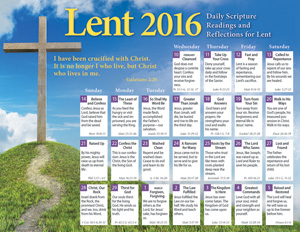
During a recent TheoTek (Episode 55), one of the parts of the conversations brought up the yearly topic of apps for Lent. And while some of our Christian brothers and sisters might not have much knowledge about the reason for (or practices within) Lent – my history in the Roman Catholic Church has marked this as something that’s not easily forgotten, and usually puts me in the right mindset as the Winter season concludes.
Many, many years back, we created a Bible Apps list. Mostly because finding bible apps was hard, there were no usable app stores for many of you, and it just made sense in terms of getting some traffic this direction. The BIble Apps page is very much out of date now – lots of folks have moved from app listings to recommended apps – but we’ve kept it up as it does present a decent start for many folks. As such, this page was expanded to include many faith-based app genres not so easily seen in app stores. Of note, we added Lent and Advent apps because there’s something of a place for them…
…or is there?
Much of the conversation around Lent revolves around setting some areas of discipline that we usually don’t have. Traditionally, that’s not partaking in some foods. In modern times, that’s extended to removing yourself from food, media, people, and even technology tools. So when I’m asked, “what kinds of apps for Lent would you recommend,” it becomes something of a challenge. To one degree, having an app that assists with remembering the Stations of the Cross, Daily/Weekly devotionals, etc. makes sense. On the other hand, it might speak to possibly letting aspects (if not the entire computer/mobile/social network/etc.) go for 40 days.
This isn’t a dozen years ago (when MMM got started). The conversation about the place for digital/connected devices and services has certainly moved past simpler times. Yet, there is this part of the conversation that’s worth having – and probably moreso now that we are seeing clearer how mobile (and connected services) bridge digital and spiritual worlds and behaviors. Where pastor-teachers, academics, etc. need to continue to steer this conversation is not so much whether Lent has a place or not in this age, but how its place is better understood. And if those faith leaders aren’t having that conversation – again, not all faiths observe Lent – perhaps it does make sense to reserve this time as a place to have those discussions on the ethics and behaviors of connectivity.
Better than having the discussion is to actually move towards a direction. You can continue in the newly formed digital traditions and invest in Lent apps and services with the knowledge that not everyone is going to understand or go with you. Or, you can take this time away from connected spaces, so that you better tap into the ethereal leanings of the faith-as-lived.